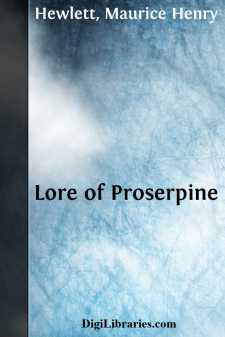Fiction
- Action & Adventure 180
- Biographical 15
- Christian 59
- Classics 6965
- Coming of Age 5
- Contemporary Women 3
- Erotica 8
- Espionage/Intrigue 12
- Fairy Tales, Folklore & Mythology 236
- Family Life 169
- Fantasy 117
- Gay 1
- General 596
- Ghost 32
- Historical 808
- Horror 43
- Humorous 160
- Jewish 25
- Legal 4
- Medical 22
- Mystery & Detective 315
- Political 49
- Psychological 41
- Religious 64
- Romance 159
- Sagas 11
- Science Fiction 730
- Sea Stories 113
- Short Stories (single author) 537
- Sports 10
- Suspense 1
- Technological 8
- Thrillers 2
- Urban Life 31
- Visionary & Metaphysical 1
- War & Military 173
- Westerns 199
Fiction Books
Sort by:
by:
Mary Jane Holmes
FRIDAY AFTERNOON. The Sunday sermon was finished, and the young rector of St. Mark's turned gladly from his study-table to the pleasant south window where the June roses were peeping in, and abandoned himself for a few moments to the feeling of relief he always experienced when his week's work was done. To say that no secular thoughts had intruded themselves upon the rector's mind, as he...
more...
CONCERNING THE PARSON'S CHOICE BETWEEN TOWN AND COUNTRY. One very happy circumstance in a clergyman's lot, is that he is saved from painful perplexity as regards his choice of the scene in which he is to spend his days and years. I am sorry for the man who returns from Australia with a large fortune; and with no further end in life than to settle down somewhere and enjoy it. For in most cases...
more...
CHAPTER I WHEREIN A LAD SEES MAKERS OF HISTORY "Has any one seen Eric Hamilton?" I asked. For an hour, or more, I had been lounging about the sitting-room of a club in Quebec City, waiting for my friend, who had promised to join me at dinner that night. I threw aside a news-sheet, which I had exhausted down to minutest advertisements, stretched myself and strolled across to a group of old...
more...
THE WINDOWS You will remember that Socrates considers every soul of us to be at least three persons. He says, in a fine figure, that we are two horses and a charioteer. "The right-hand horse is upright and cleanly made; he has a lofty neck and an aquiline nose; his colour is white and his eyes dark; he is a lover of honour and modesty and temperance, and the follower of true glory; he needs no...
more...
CHAPTER I A RENCONTRE There was no particular reason why, after having left the Opera House, I should have retraced my steps and taken my place once more amongst the throng of people who stood about in the entresol, exchanging greetings and waiting for their carriages. A backward glance as I had been about to turn into the Place de l'Opera had arrested my somewhat hurried departure. The night was...
more...
by:
Robert Barr
I.—LORD STRANLEIGH ALL AT SEA. A few minutes before noon on a hot summer day, Edmund Trevelyan walked up the gang-plank of the steamship, at that moment the largest Atlantic liner afloat. Exactly at the stroke of twelve she would leave Southampton for Cherbourg, then proceed across to Queenstown, and finally would make a bee-line west for New York. Trevelyan was costumed in rough tweed of subdued...
more...
CHAPTER I THE BLUE BIRD The tall youth, turning to the right, went down a gentle slope until he came to a little stream, where he knelt and drank. Despite his weariness, his thirst and his danger he noticed the silvery color of the water, and its soft sighing sound, as it flowed over its pebbly bed, made a pleasant murmur in his ear. Robert Lennox always had an eye for the beautiful, and the flashing...
more...
CHAPTER I ELEMENTS OF EDUCATION If anybody cares to read a simple tale told simply, I, John Ridd, of the parish of Oare, in the county of Somerset, yeoman and churchwarden, have seen and had a share in some doings of this neighborhood, which I will try to set down in order, God sparing my life and memory. And they who light upon this book should bear in mind not only that I write for the clearing of...
more...
General Articles and Works. 1. The Philosophic Grammar of American Languages as set forth by Wilhelm von Humboldt; with the translation of an unpublished Memoir by him on the American Verb. pp. 51. In Proceedings of the American Philosophical Society, 1885. 2. On Polysynthesis and Incorporation as characteristics of American Languages. pp. 41. In Proceedings of the American Philosophical Society, 1885....
more...
CHAPTER I. It was on the last day of summer, 1846, that a large vessel of war lay in the stream of Boston Harbor; presently a dirty little steam tug, all bone and muscle, came burroughing alongside. The boatswain and his mates whistled with their silver pipes, like Canary birds, and the cry went forth, to heave up the anchor. Soon the ponderous grapnell was loosened from its hold, and our pigmy...
more...











